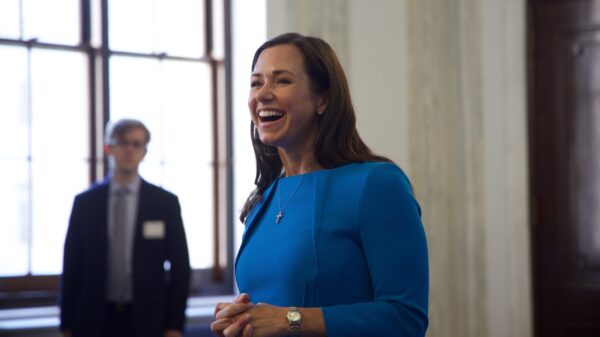By Brandon Moseley
Alabama Political Reporter
Tuesday, December 3, US Representative Mo Brooks (R-Huntsville) voted against the bipartisan transportation bill calling the legislation, “financially flawed” Congressman Brooks said in a statement that the Surface Transportation Reauthorization and Reform Act of 2015 “transportation” bill simultaneously increases America’s debt by $33.1 billion over five years, raises taxes on banks and bank customers (but not enough to eliminate the bill’s deficits), risks America’s national security by selling America’s Strategic Petroleum Reserves at likely losses to American taxpayers, and diverts gasoline and diesel taxes from highways to non-highway projects.
 Explaining why he voted against the FAST Act, Congressman Brooks stated: “Today’s transportation bill reveals the stark reality that, sadly, Washington ignores: the federal government continues to overreach—at taxpayers’ expense—in its scope of function. This $280 billion “transportation” bill simultaneously increases America’s debt by $33.1 billion over five years, raises taxes on banks and bank customers, and diverts gasoline and diesel taxes from highways to non-highway projects.”
Explaining why he voted against the FAST Act, Congressman Brooks stated: “Today’s transportation bill reveals the stark reality that, sadly, Washington ignores: the federal government continues to overreach—at taxpayers’ expense—in its scope of function. This $280 billion “transportation” bill simultaneously increases America’s debt by $33.1 billion over five years, raises taxes on banks and bank customers, and diverts gasoline and diesel taxes from highways to non-highway projects.”
Rep. Brooks said, “I could not in good conscience support an unfocused, 1,300-page, 11th-hour bill that relies on an inadequate, gimmicky hodgepodge of funding sources while diverting so much money from transportation infrastructure improvements that it fails to adequately address America’s critical US highway and interstate needs.”
Rep. Brooks warned, “America’s debt will soon blow through the $19 trillion mark. Yearly deficits that had been getting better since 2010 have bottomed out and are now worsening. America’s Comptroller General and the nonpartisan Congressional Budget Office have repeatedly warned Congress and the White House that America’s financial path is ‘unsustainable’, which means America faces a debilitating insolvency and bankruptcy if Washington does not change its out-of-control spending ways. This transportation bill worsens America’s five-year deficit by at least $33.1 billion. As such, it is financially reckless and irresponsible.”
Rep. Brooks stated, “While the federal government must pay for needed construction and maintenance of US highways and interstates, it must do so in a financially responsible way. Contrary to what financial prudence demands, this transportation bill not only risks America’s financial solvency, it also undermines America’s national security by foolishly selling crude oil in America’s Strategic Petroleum Reserve, thereby risking America’s economy and national defense should there be a repeat of the 1973 oil embargo.
“Historically, US highways and interstates have been paid for with user fees, i.e., gasoline and diesel fuel taxes. This legislation also makes a radical shift by imposing $60 billion in taxes, fees, and cost burdens on banks and bank customers to help pay for America’s highways.”
Brooks said, “A transportation bill should not include wholly unrelated matters such as energy infrastructure legislation. This transportation bill does. A transportation bill should not address the unrelated expansion of lending practices. This transportation bill does. A transportation bill should not impact unrelated mortgage licensing laws. This transportation bill does.”
Speaker of the House Paul Ryan (R-Wisconsin) supported the bill. Ryan said in a statement, “Today, we passed the first long-term transportation legislation in a decade. This five-year, fully-funded bill will help sustain and improve our highways, bridges, railroads, and other vital transit systems. These infrastructure projects are some of the most important investments we make as a country. I thank Chairman Shuster for his tireless work on this measure from start to finish. This is what getting things done look like–an open amendment process, a conference committee, and time to read the bills before voting on them.”



















































